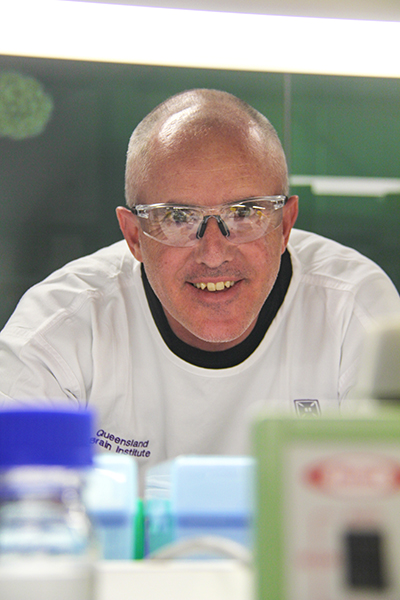Dr Tristan Wallis: lipidomics researcher

At the age of 53, Dr Tristan Wallis never expected to be part of the biggest discovery of his life. However, a recent publication in Nature Communications capped off many years of work by demonstrating that levels of saturated free fatty acids (FFAs) rise in the brain during memory formation.
Dr Wallis is a lipidomics researcher who joined Professor Frederic Meunier’s laboratory at The Queensland Brain Institute in 2017 to study the relationship between lipids and memory. The team had previously developed a powerful technique for analysing FFAs and investigated their behaviour in neural cultures. The work was expanded to the brains of live rodents, and after developing a suite of software tools, he was able to analyse and extract the data that would lead to this remarkable discovery.
Dr Wallis and the team are now taking the findings one step further to look at the effects of these saturated FFAs in ageing and cognition. Working alongside QBI’s Emeritus Professor Perry Bartlett and Dr Steven Zuryn, the three laboratory groups are combining their expertise to look at ageing from a metabolic, lipidomic and behavioural aspect.
“We’re now testing these findings on an ageing mouse colony and already we’ve seen some very intriguing results, showing that these same FFAs correlate with cognitive decline in animals,” he said.
“If we look at the lipids in those old mice, who can’t learn, the things that are different about them are that they have less of these saturated FFAs. We’re trying to see whether by changing the diet of these mice we can improve cognition.
“This gives us completely wide-open pastures for us to run around in and explore. Particularly because we don’t yet fully understand how FFAs actually function in cognition and memory.
“Our ultimate aim is to show that the idea that simple changes to diet and exercise can lead to better retention of cognitive function, has some serious science underpinning it.”
